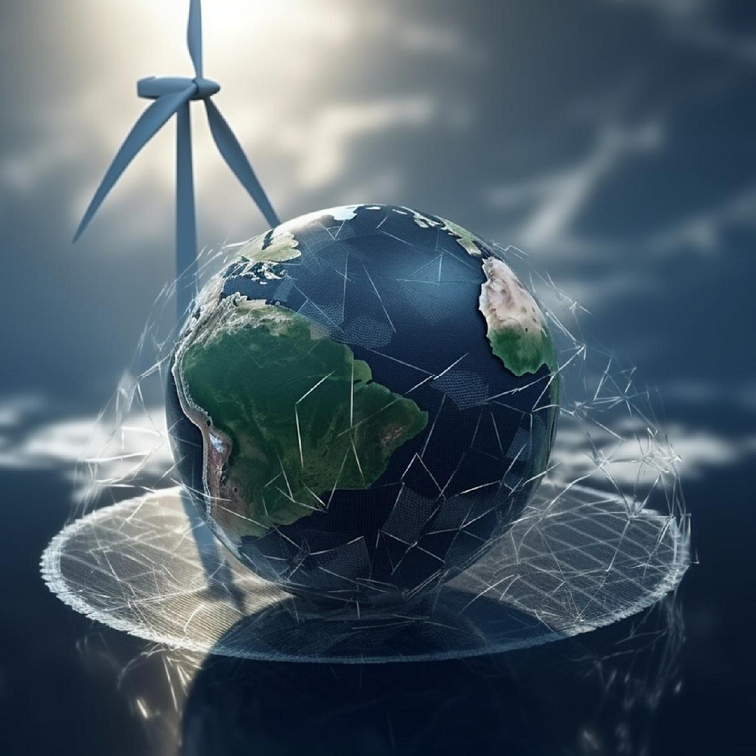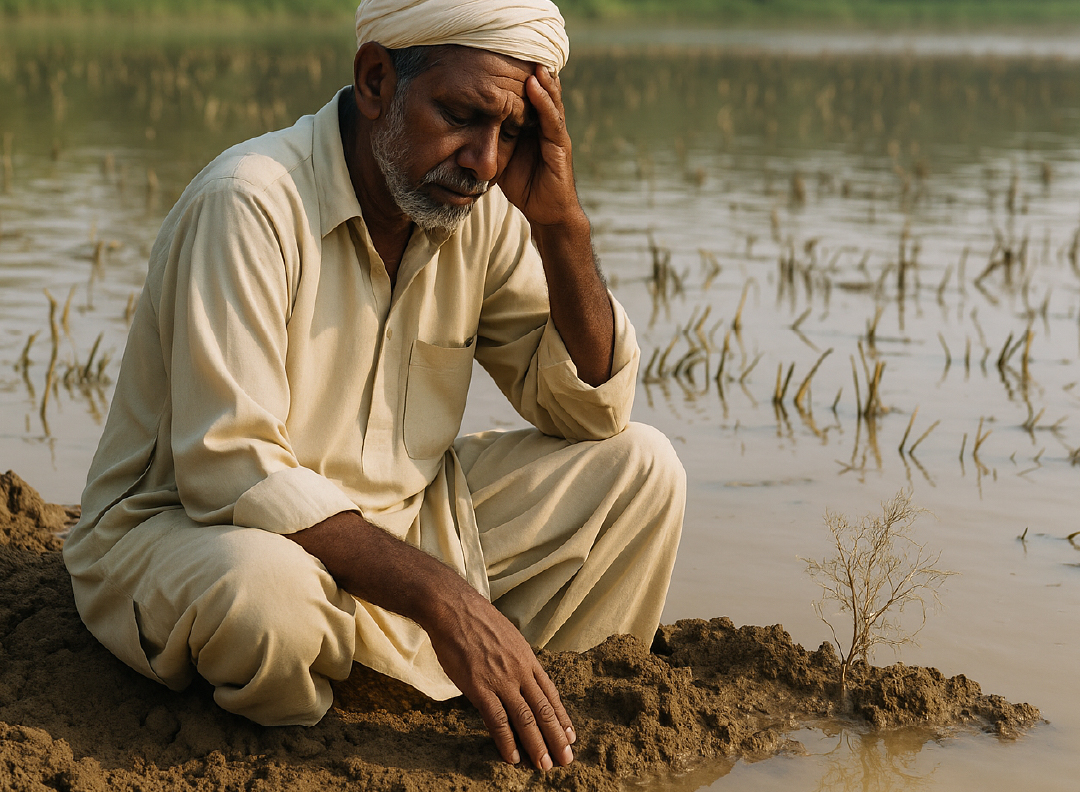Pakistan’s bustling industrial zones, the core of its economic growth, are on the brink of a green revolution. As the global community shifts towards greener and more sustainable practices, Pakistan finds itself at a critical juncture. The industries that have long been the backbone of its economy: cement, textiles and steel are now grappling with a formidable challenge, i.e. decarbonisation.
The sectors mentioned above that are integral to Pakistan’s economic future are also among the most difficult to decarbonise due to their high energy intensity and reliance on fossil fuels. The task ahead is daunting, particularly in a world where geopolitical tensions such as the Russia-Ukraine conflict have pushed up energy prices, disrupted global supply chains and intensified competition for resources. For Pakistan, the stakes have never been higher. The drive to reduce carbon emissions is not just about meeting global climate commitments but it is also about ensuring Pakistan’s long-term economic resilience, competitiveness and prosperity.
Challenges and opportunities
Pakistan, a signatory to the Paris Agreement, has made ambitious commitments at the global stage. The country’s nationally determined contributions (NDCs), first submitted in 2016 and revised in 2021, outline a bold target -- a 50pc reduction in greenhouse gas emissions by 2030, conditional to the international support. However, behind these commitments lies a stark reality in the form of industrial sector, which accounts for a significant portion of the country’s greenhouse gas emissions. On the other hand, a comprehensive and feasible plan to achieve these reductions also is not in sight.
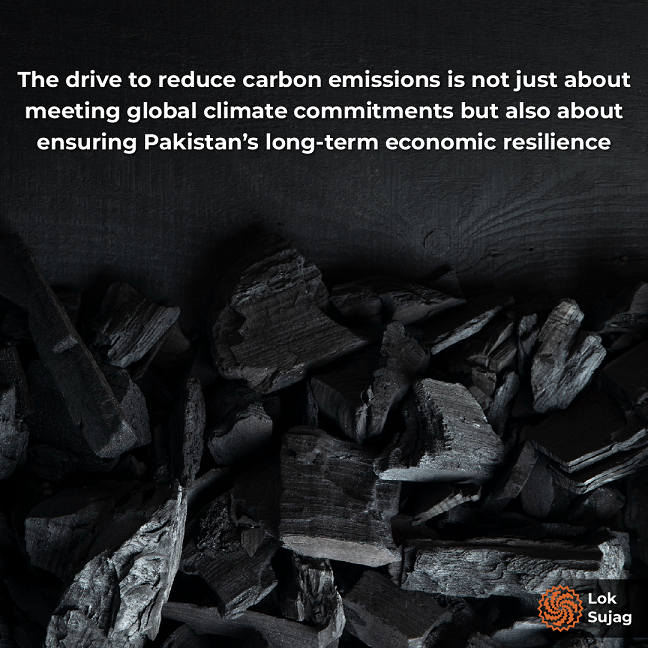
The challenges confronting Pakistan’s industrial sector are manifold, including outdated and inefficient machinery, frequent power outages, a fragmented energy supply chain and shortage of skilled labour. The textile industry, one of the country’s largest economic contributors, is grappling with the fallout of an estimated $70m loss due to power outages in 2023. Compounding these issues is the alarming fact that over 80pc of Pakistan’s youth labour force is undereducated and underskilled, creating a significant gap between the capabilities and the demands of a decarbonised future.
But where there are challenges, there are also opportunities. Decarbonisation offers Pakistan a chance to attract green investment, create new jobs and boost export competitiveness especially under the initiatives like the EU’s Carbon Border Adjustment Mechanism (CBAM). The CBAM, which imposes a carbon price on imports into the EU, could serve as a powerful catalyst for Pakistan’s industries to adopt cleaner technologies and reduce their carbon footprint. By aligning with these global trends, Pakistan can ensure continued access to critical international markets, safeguarding its economic future.
Learning from best global practices
The experiences of countries like Germany and Japan offer valuable lessons for Pakistan. Both nations have implemented robust decarbonisation strategies that have not only reduced emissions but also enhanced industrial efficiency, spurred innovation and bolstered economic resilience. Germany’s energiewende (energy transition) and Japan’s commitment to energy efficiency and renewable energy are prime examples of how a systematic and well-supported approach to decarbonisation can drive economic growth while achieving environmental sustainability.
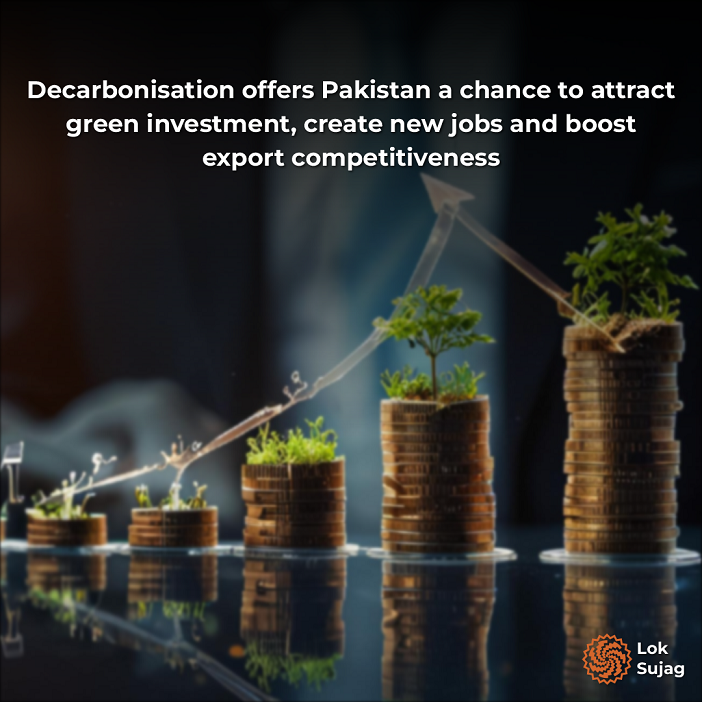
For Pakistan, the path forward lies in modernising and updating its industries and embracing renewable energy sources. The government must take decisive action by offering financial incentives for adoption of energy-efficient technologies, investment in vocational training to upskill the workforce and create a stable political and security environment that encourages domestic and foreign businesses. Moreover, Pakistan should consider forging partnerships with countries that have successfully navigated the transition to a low-carbon economy. Such collaborations could facilitate the transfer of knowledge, technology and the best practices, enabling Pakistan to leapfrog over some of the hurdles that have historically impeded industrial modernisation.
Comprehensive strategy for industrial decarbonisation
The journey to decarbonization is not only about upgrading equipment or adopting new technologies. It necessitates a fundamental shift in the operations of industrial sector, including exploring alternative fuels such as agricultural waste, chemical byproducts and biomass and implementing circular economic practices that reduce waste and improve resource efficiency. The circular economy model, which emphasises the reuse, recycling and regeneration of materials, could play a pivotal role in minimising the environmental impact of industrial activities while creating new economic opportunities.
One promising avenue for Pakistan’s industry is the use of refuse-derived fuel (RDF) that involves repurposing waste materials like scrap tires, plastics and municipal solid waste as energy sources. This not only helps reduce reliance on coal, a major source of carbon emissions, but also mitigates the environmental impact of waste, turning a potential liability into a valuable asset. By adopting the RDF and other alternative fuels, Pakistan can reduce its carbon footprint, lower production costs and enhance the sustainability of its industrial sector.
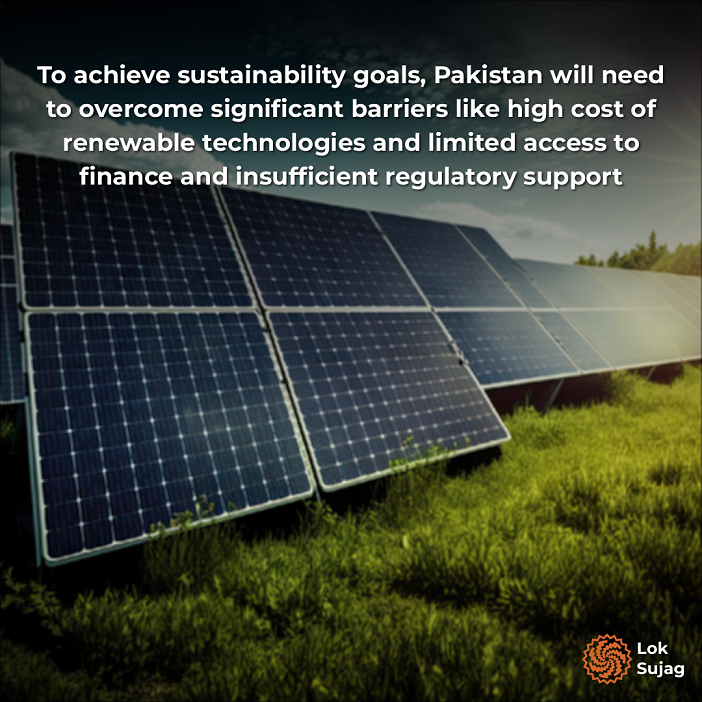
But to achieve these goals, Pakistan will need to overcome significant barriers like high cost of renewable technologies and limited access to finance and insufficient regulatory support. A comprehensive approach is needed that includes the development of a national carbon pricing policy to incentivise emission reductions and align Pakistan with global trends in carbon pricing. Such a policy could provide the financial impetus for industries to invest in cleaner technologies and adopt more sustainable practices, ultimately leading to a more resilient and competitive industrial sector.
Role of government and policy frameworks
The government’s role in facilitating this transition cannot be ignored. A robust policy framework is essential to guide and support industries for decarbonisation. There should be a policy for not only financial incentives but also clear regulations, standards and targets that provide industries with that certainty they need to make long-term investments in sustainable technologies.
One of the key areas where government intervention is crucial is in the energy sector. Pakistan’s energy mix is still heavily reliant on fossil fuels, particularly coal, which contributes significantly to its greenhouse gas emissions. The government must prioritise development of renewable energy sources, such as solar, wind and hydropower for clean and reliable energy for industry. By investing in renewable energy infrastructure and providing subsidies or tax incentives for renewable energy projects, the government can reduce the carbon intensity of industrial production and help industries transition to a low-carbon future.
In addition to energy policy, the government should also focus on improving industrial efficiency. This could involve stricter energy efficiency standards for industrial equipment and processes and promotion of energy management systems that help industries monitor and optimise their energy use.
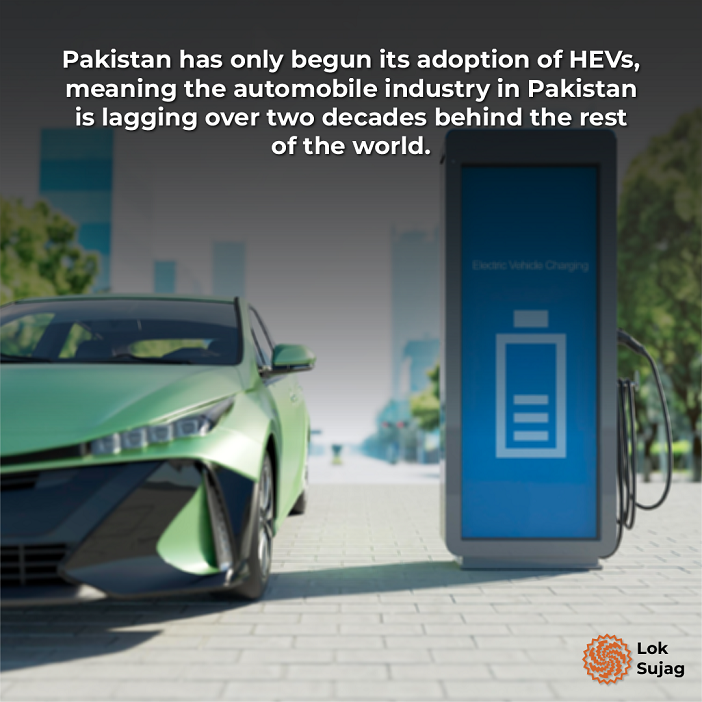
Furthermore, the government could establish green industrial zones where industries are required to meet specific environmental criteria, such as the use of renewable energy, efficient waste management practices and low-carbon production methods. These zones could serve as models of sustainable industrial development and attract investment from the companies looking to operate in an environmentally responsible manner.
Education, training and workforce development
Another critical component of the decarbonisation strategy is workforce development. As the demand for green jobs grows, there will be the need for a skilled workforce that can design, implement and maintain the technologies and processes required for a low-carbon industrial sector. This will require investment in education and vocational training programmes that equip workers with required skills for the jobs of the future.
The government, in collaboration with the private sector and educational institutions, should develop training programmes focusing on the areas such as renewable energy, energy efficiency, waste management and sustainable manufacturing. These programmes should focus on specific needs of different industries and regions, preparing the workers for a decarbonised economy. Additionally, the government should also support research and development initiatives in green technologies.
Economic imperative of decarbonization
The decarbonisation of Pakistan’s industrial sector is not just a moral imperative in the fight against climate change, it is a strategic necessity for economic survival in an increasingly competitive global market. As countries around the world adopt stricter environmental regulations and consumers demand more sustainable products, industries that fail to reduce their carbon footprint risk losing access to key markets and facing financial penalties.
Also Read
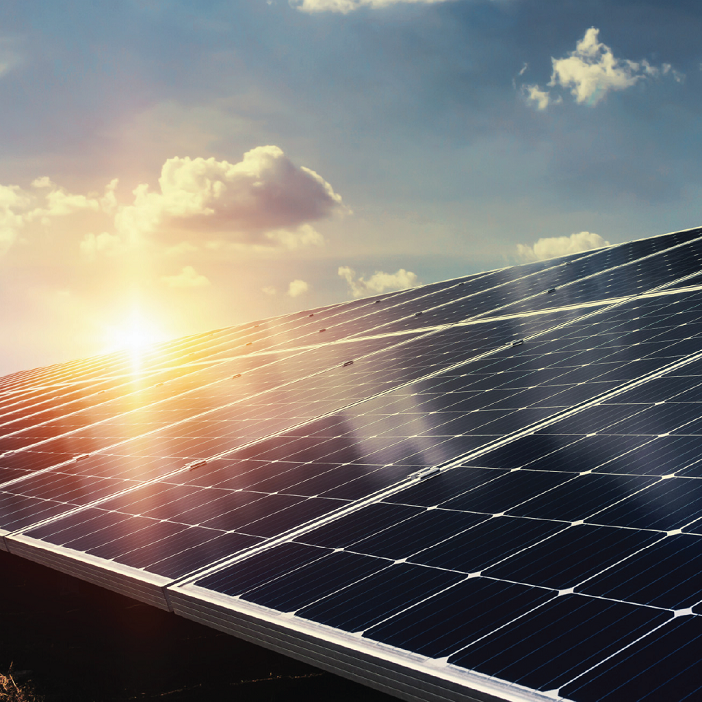
How Solar Energy is Transforming Kharan in the Thick of Power Crisis
By adopting decarbonisation, Pakistan can position itself as a leader in sustainable industrialisation, ensuring that its industries remain competitive in the global economy. This shift will require investment and a long-term commitment from both the government and the private sector. Its potential rewards are substantial as decarbonisation can lead to increased efficiency, lower production costs, and access to new markets, all of which are essential for Pakistan’s economic growth.
A vision for industrial future
As Pakistan stands on the verge of this transformation, the decisions made today will shape the future of its industrial sector and, by extension, the country as a whole. The path forward is not easy and there will be challenges along the way. However, by adopting a proactive and strategic approach to decarbonisation, Pakistan can turn these challenges into opportunities.
The vision for Pakistan’s industrial future is economic growth and environmental stewardship going hand in hand. It is a future where industries will thrive because of meeting the challenges of climate change. By embracing decarbonisation and investing in sustainable industrial practices, Pakistan can build a more resilient and prosperous economy that is capable of withstanding shocks of a changing climate and competing in a rapidly evolving global market.
Published on 22 Aug 2024
